Sharing is caring!
As one of the spring’s most beloved perennial bulbs, tulips bloom in countless colors. You can move potted tulips to the garden or try transplanting tulips from one bed to another to spread the beauty.
You are watching: Transplanting Tulips from Pots to the Ground & More
Transplanting tulips is similar to replanting daffodils or transplanting hyacinths in the garden. It’s easier than you might expect!
By the way – if you’re lucky, you may be able to find flowering perennial bulbs on clearance after Easter! Personally, I consider tulips (scientific name: Tulipa) among the jackpot of discount perennials.
After fading, simply replant the bulbs in the garden to continue the gorgeous blooms year after year.
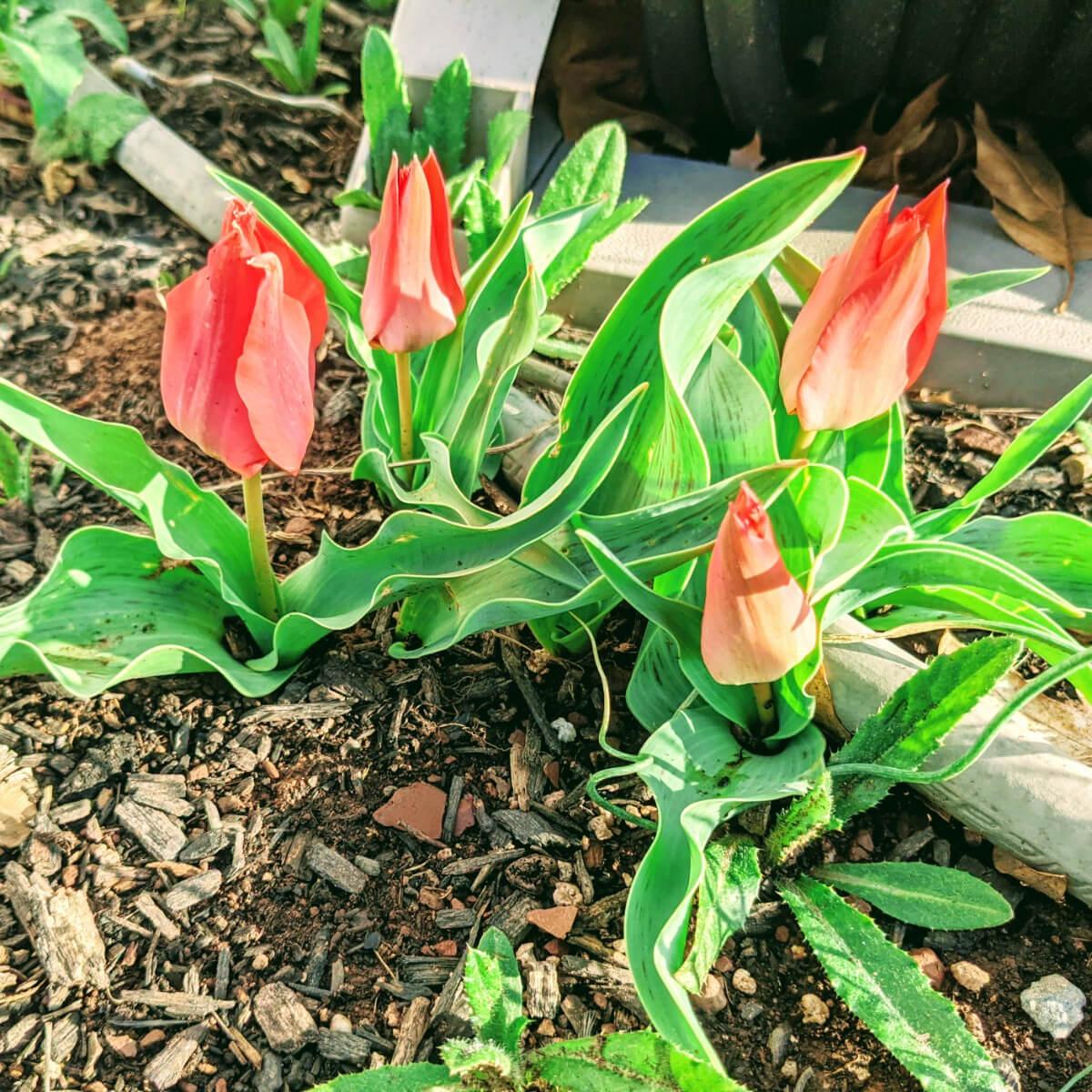
Here’s precise advice on how to transplant tulips in the garden from pots or other planting beds.
When is a good time to transplant tulips?
The best time to transplant tulips is typically in the summer after the foliage begins to brown and dies back or in the fall when they are dormant underground. If transplanting tulips in the fall, make sure you mark their location for easy digging later. Also, you can transplant tulip bulbs in pots in the spring once they’ve finished blooming.
Read more : Incident in a Rose Garden
Knowing when to transplant tulips in different scenarios helps to ensure better success of your transplants.
Don’t worry too much if you’ve already replanted tulips earlier or later than intended. In fact, as long as the ground is still workable, you can still plant perennial bulbs. In most cases, they will recover just fine in a season or two!
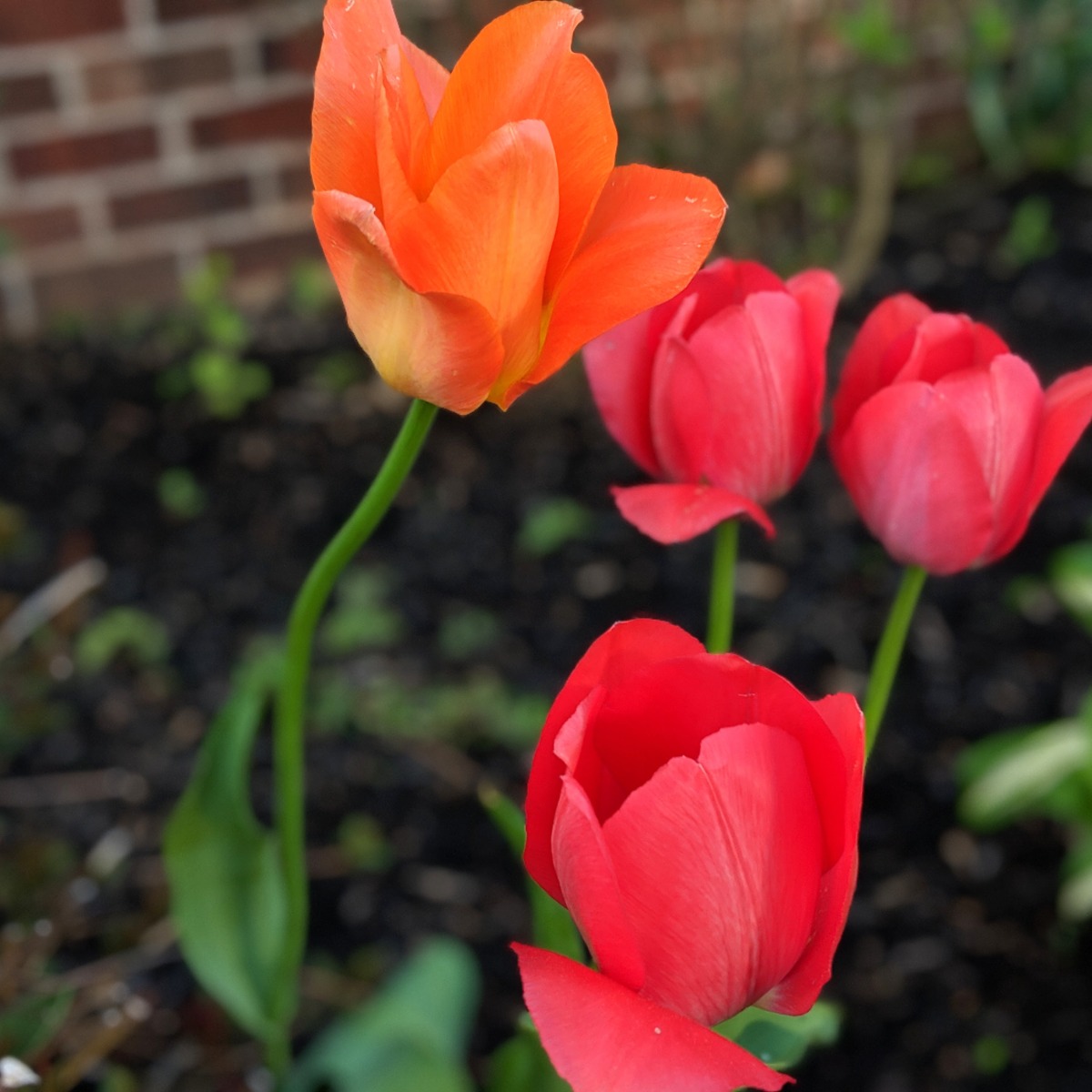
What is important to consider when replanting tulip bulbs?
When you replant tulips, keep in mind that they prefer full sun if possible. Tulips also enjoy rich and well-draining soil that is slightly acidic or neutral. Plant the tulips in the ground three times the height of the bulb, usually between 5 to 8 inches deep.
Benefits of Replanting Tulip Bulbs
Replanting tulips in the garden offers quite a few benefits to your garden and beyond!
- Take beauty from one area and move it to another.
- Create symmetry if you like!
- Share and swap perennials like tulips with friend and neighbors.
- Easily plant perennials that will come back year after year.
- Enjoy tulips growing bigger and multiplying each year.
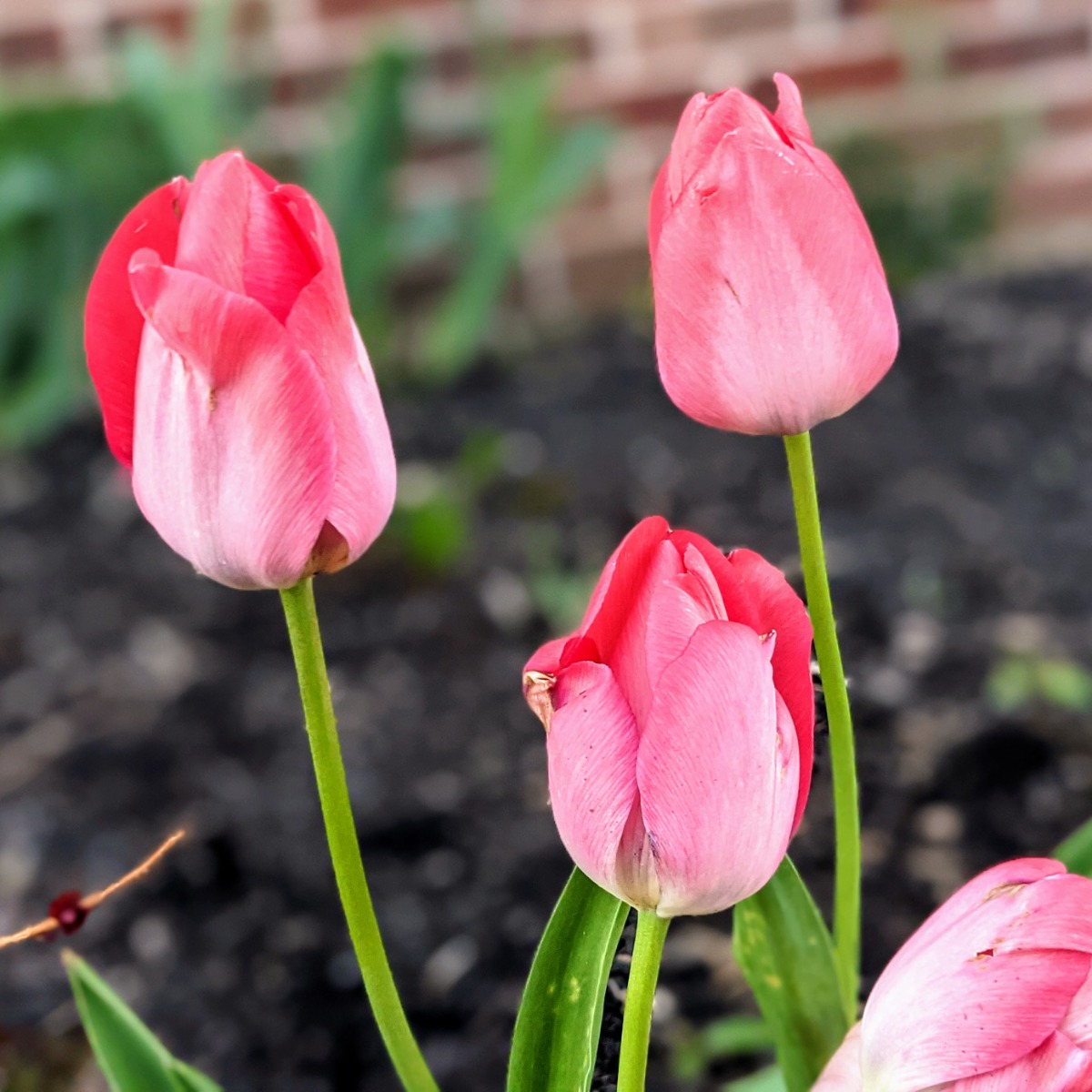
How to Transplant Tulips: 2 Ways
Follow these easy steps to replant tulips in your garden from pots or other flowerbeds.
Transplanting Tulips from Pot to Ground
Maybe your kids gave you some lovely potted tulips for Easter. Or maybe you found them on clearance. Whatever the case, give those gorgeous flowers room to bloom year after year!
Follow these steps to transplant tulips from pots to the ground:
- Enjoy the tulips on your kitchen table or otherwise until the blooms fade.
- Choose a spot in the garden for replanting tulip bulbs.
- Dig a hole that is between 5 and 8 inches deep.
- Squeeze to gently loosen the soil from the pot.
- Place the tulip bulb(s) and its soil in the hole.
- Refill the rest of the planting hole with fertile, well-draining soil.
- Leave spacing of about 6 inches between tulips if planting more than one.
- Determine whether you should water the bulbs.
- In spring, there’s no need to water. The tulips should become established over the fall and bloom nicely the following year.
- For fall planted bulbs moved from pots, water well to help promote rooting. These bulbs need to establish themselves before winter.
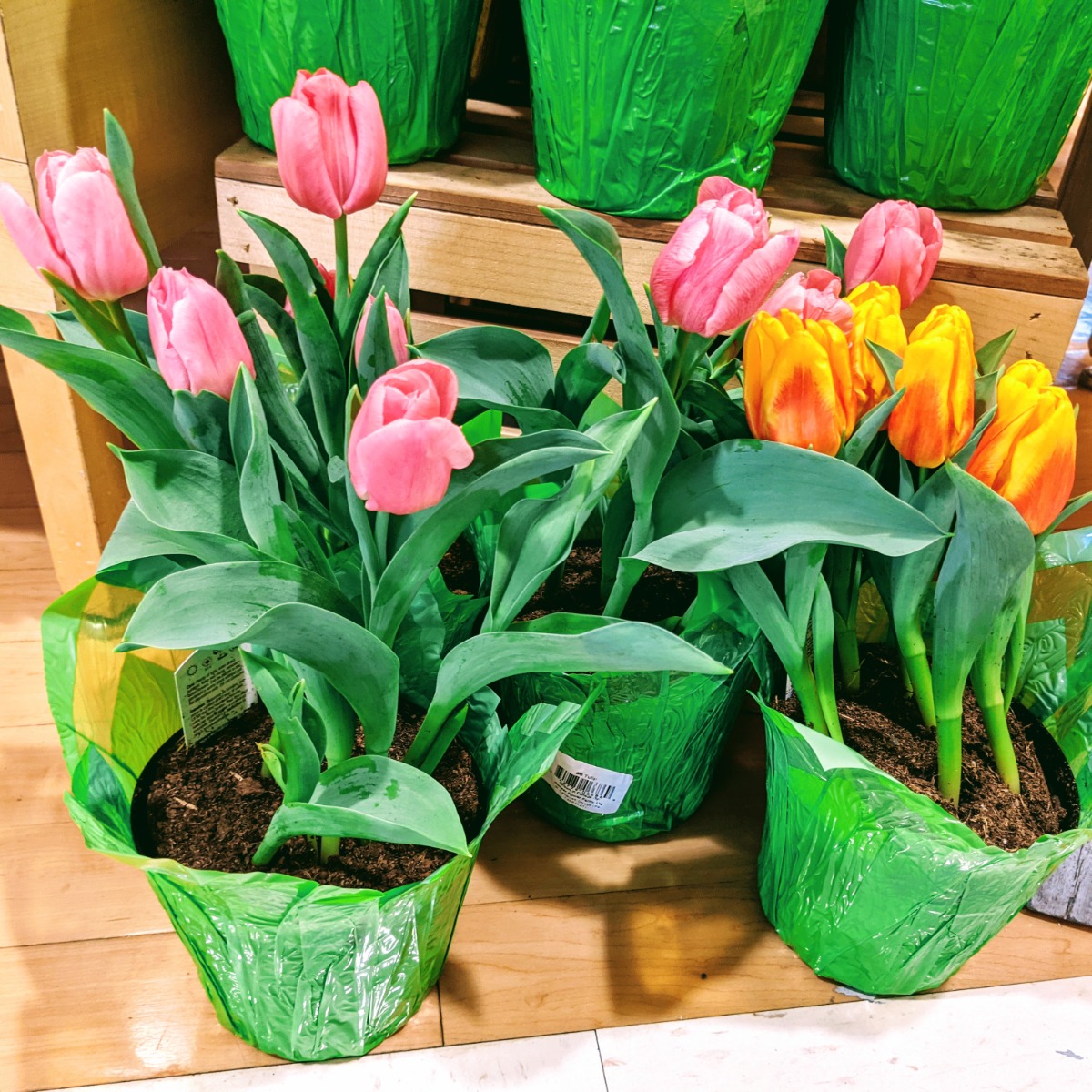
You can the soil break apart and plant tulips in groups or singly. Transplant tulips outside after they bloom in pots to enjoy repeat blooms every spring from your garden.
Relocating Tulip Bulbs in the Garden: Lift & Replant
Read more : How to Store Green Onions
If you wish to transplant tulip bulbs to different parts of the flowerbeds, do so in the summer or fall if possible.
TIP – If you plan to move tulips in your garden in the fall, use a seashell plant marker, garden stake, or other adornment to mark their location.
Follow these steps to lift and move tulip bulbs from one part of the garden to another.
Lifting Tulip Bulbs
- Identify the location of the tulip bulbs you wish to move.
- Use a digging shovel to dig down and loosen the dirt at least 3 to 4 inches outside of where the bulbs are.
- Dig all the way around so you can “pop” up the chunk of soil.
- After you’ve dug around a full circle, dig deeper and then press down to pop the soil up.
- Lift the chunk of soil out of the ground and look for tulip bulbs.
- Gently loosen the soil and carefully remove the bulbs. Set them aside.
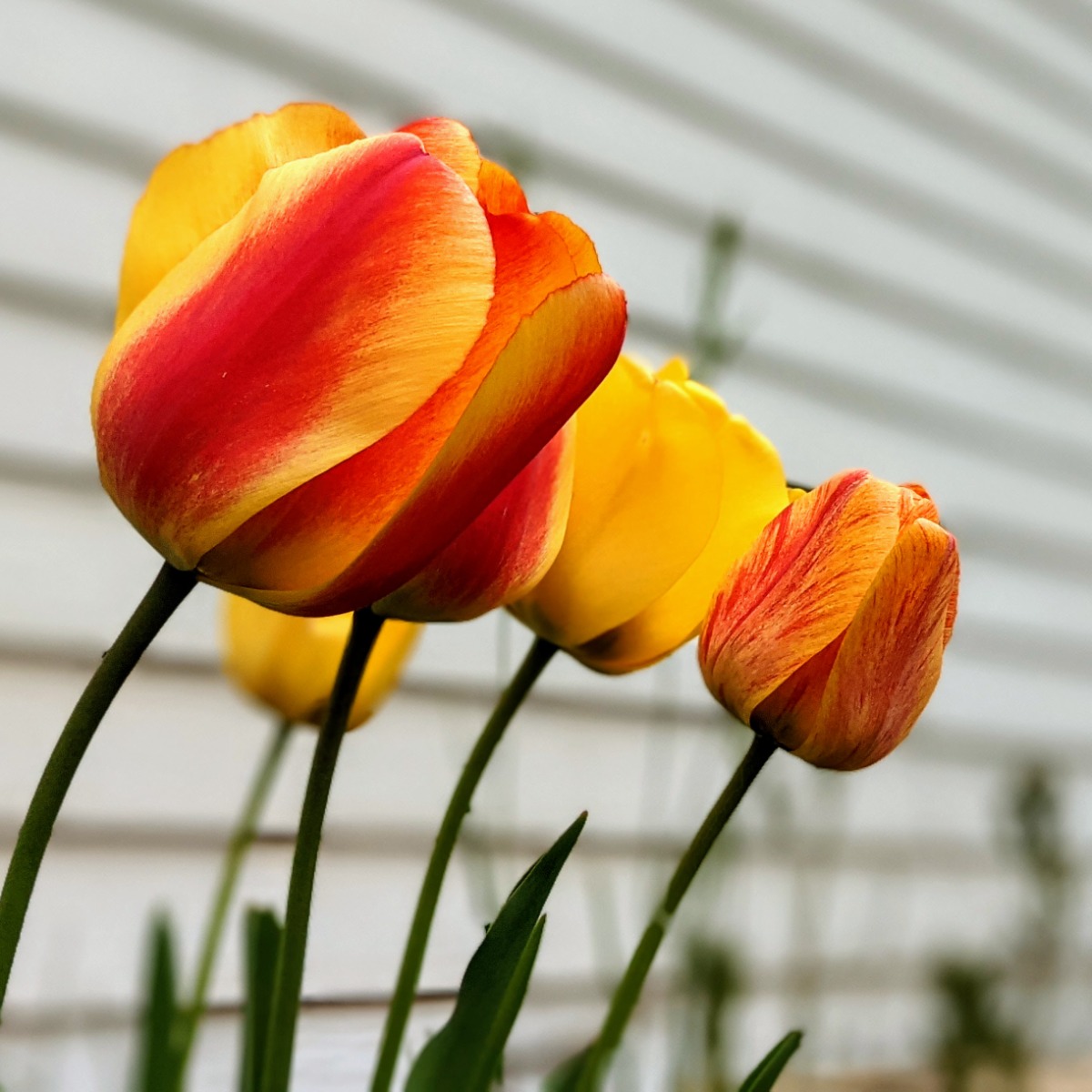
Replanting Tulip Bulbs
- Dig a hole 5 to 8 inches deep in the new location for the tulip bulbs. (The hole should be 2 to 3 times as deep as the tulip bulb height.)
- Make sure good, well-draining soil still sits at the bottom of the hole. If not, dig a bit deeper and add some.
- Place one or more tulip bulbs in the hole with the pointed end facing up.
- Replace the soil with more well-draining, fertile soil to meet the soil line.
- Water the bulbs to help them get established and begin rooting before winter arrives.
- Leave a plant marker to mark the location of your tulips in case you do any other plantings before they bloom.
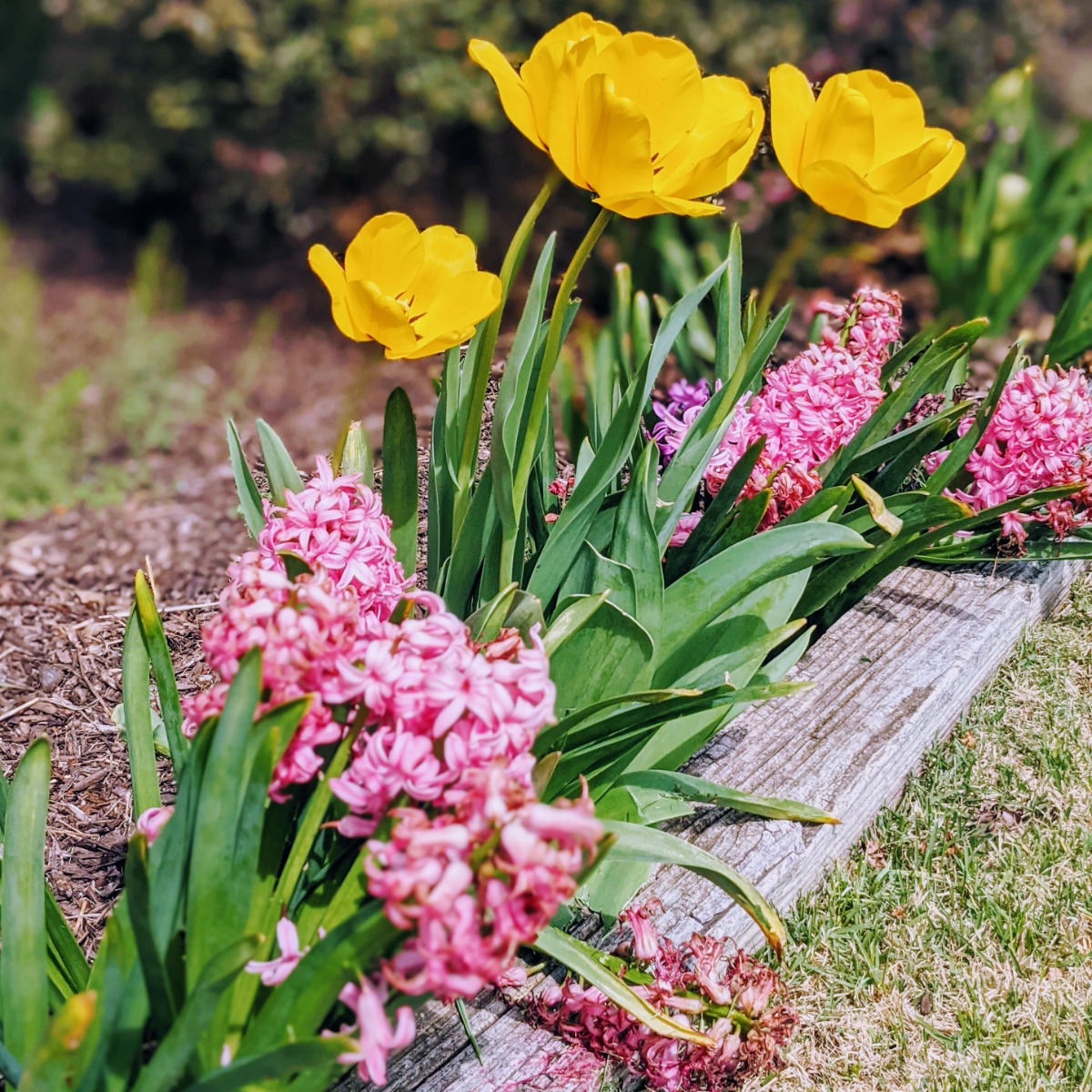
Transplanting Tulip Bulbs & More Tips
Planting tulips from existing plantings or pots adds more color and dimension to your garden. Try these tips to maximize your success and enjoyment of tulips in the garden!
- Amend the soil if needed. Some, like us, have predominantly clay or rocky or otherwise unfavorable soil. Tulips like a richer, more fertile soil that drains well. Improve the soil directly in the planting holes for a healthier, happier set of tulips.
- Keep tulip hardiness in mind. Tulips generally like the cold and are hardy in grow zones 3 through 7. If you live outside of this region, you should plan to lift tulip bulbs for proper storage after the blooming season.
- Consider growing tulips in pots. If you aren’t sure about your grow zone or just like the convenience, you can grow tulips in pots all year!
- Force tulips for earlier blooms. Potted tulips can bloom earlier if you replicate winter conditions. Keep tulips in a dark and chilled environment for 3 to 4 months at around 40 degrees. Your unheated, attached garage could be a fine location. Water lightly once a week or so. Then, bring them to a sunny spot and they should soon grow and bloom!
- Find a friend to swap bulbs with you! Maybe you can both expand on the different colors you grow in your gardens.
I’ve included a lot of information here to help you, but rest assured that tulips are pretty easy to replant and grow.
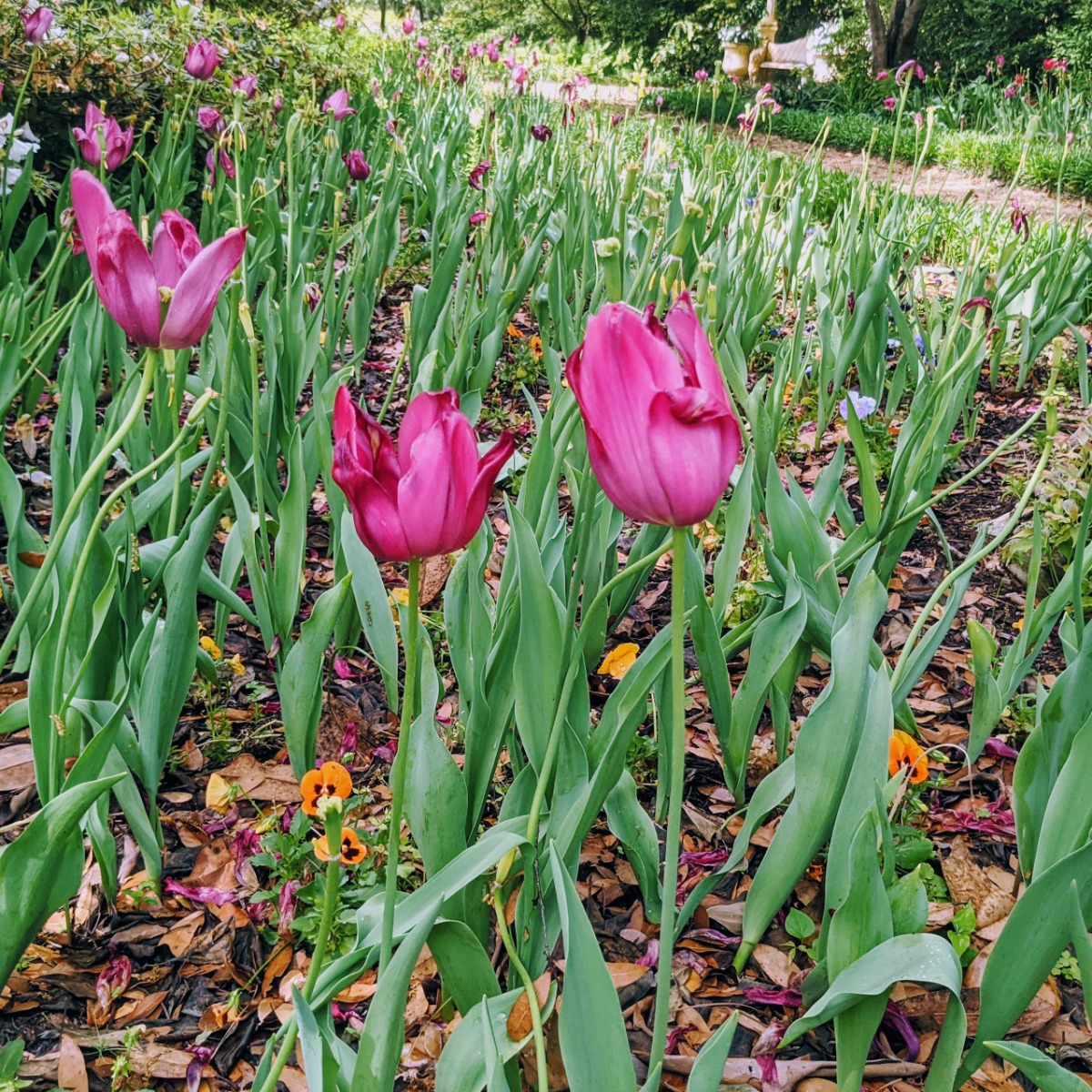
They make a lovely statement flower in your garden. Just keep them far, far away from groundhogs! Those guys decimated my backyard tulips the past few years.
Do you have any questions on transplanting tulips from pots or other parts of the garden? Feel free to share tips, questions, or your own stories in the comments below – we love hearing from you!
Happy Gardening!
Source: https://gardencourte.com
Categories: Garden news

